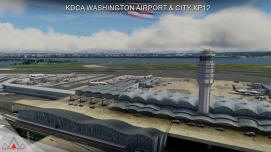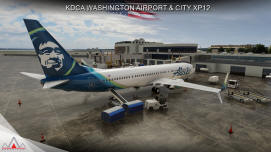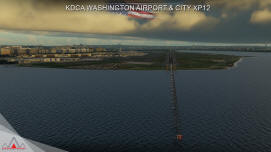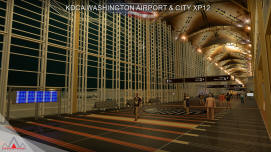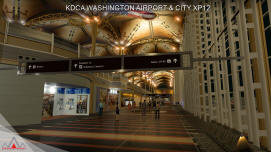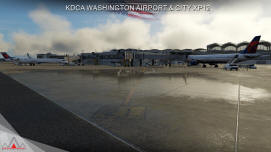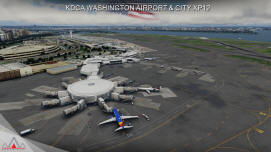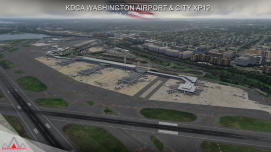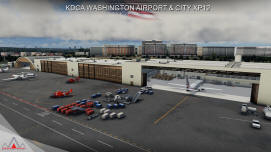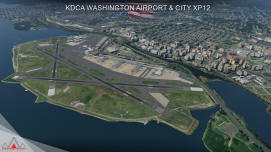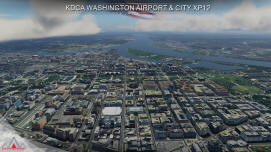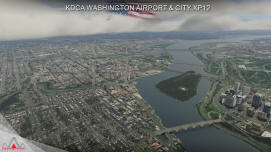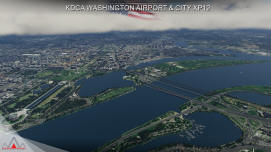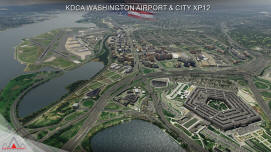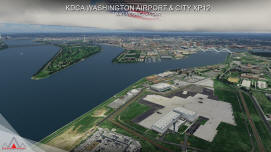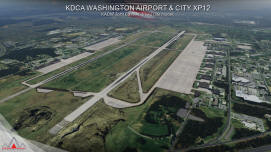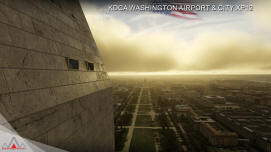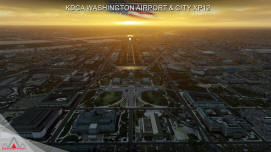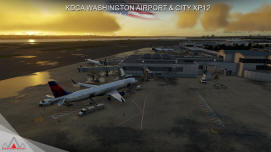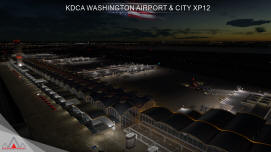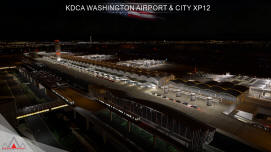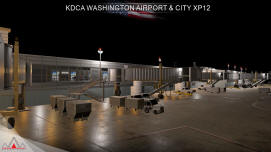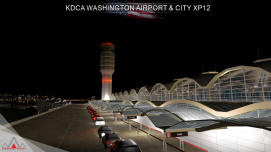|
Washington, D.C.
was founded in 1791 to serve as the new national capital. In 1791,
President Washington commissioned Pierre (Peter) Charles L'Enfant, a
French-born architect and city planner, to design the new capital.
He enlisted Scottish surveyor Alexander Ralston helped layout the
city plan. The L'Enfant Plan featured broad streets and avenues
radiating out from rectangles, providing room for open space and
landscaping. He based his design on plans of cities such as Paris,
Amsterdam, Karlsruhe, and Milan that Thomas Jefferson had sent to
him. L'Enfant's design also envisioned a garden-lined "grand avenue"
approximately 1 mile (1.6 km) in length and 400 feet (120 m) wide in
the area that is now the National Mall. President Washington
dismissed L'Enfant in March 1792 due to conflicts with the three
commissioners appointed to supervise the capital's construction
however L'Enfant is still credited with the overall design of the
city.
Ronald Reagan Washington National Airport (IATA: DCA, ICAO:
KDCA, FAA LID: DCA), is located in Arlington, Virginia, next to the
border of Washington, D.C. It is the smaller of two airports
operated by the Metropolitan Washington Airports Authority that
serve the National Capital Region around Washington. The airport is
5 miles (8.0 km) from downtown Washington D.C.. The airport's
original name was Washington National Airport. Congress adopted the
present name to honor President Ronald Reagan in 1998. The airport
served almost 24 2million passengers in 2019.
Flights into and out of the airport are generally not allowed to
exceed 1,250 statute miles (2,010 km) in any direction nonstop, in
an effort to send coast-to-coast and overseas traffic to Washington
Dulles International Airport, though there are 40 slot exemptions to
this rule. Planes are required to take unusually complicated paths
to avoid restricted and prohibited airspace above sensitive
landmarks, government buildings, and military installations in and
around Washington, D.C., and to comply with some of the tightest
noise restrictions in the country.
The airport's small size constrains its capacity, but Reagan
National currently serves 98 nonstop destinations. Reagan is a hub
for American Airlines. The airport has no United States immigration
and customs facilities; the only scheduled international flights at
the airport are those from airports with U.S. Customs and Border
Protection preclearance facilities, which generally encompasses
flights from major airports in Canada and from some destinations in
the Caribbean. Other international passenger flights to the
Washington, D.C., area use Washington Dulles International Airport
or Baltimore–Washington International Thurgood Marshall Airport.
There are currently five scheduled international routes, which are
to cities in Canada, the Bahamas, and Bermuda.
Reagan National is a hub for American Airlines, which is Reagan
National's largest carrier. American Airlines also has near-hourly
air shuttle flights to New York LaGuardia Airport and Logan
International Airport in Boston. Delta Air Lines also operates
near-hourly air shuttle flights to New York LaGuardia Airport, which
are all operated by Delta Shuttle.
Reagan National Airport
has some of the strictest noise restrictions in the country. In
addition, due to security concerns, the areas surrounding the
National Mall and U.S. Naval Observatory in central Washington are
prohibited airspace up to 18,000 feet (5,500 m). Due to these
restrictions, pilots approaching from the north are generally
required to follow the path of the Potomac River and turn just
before landing. This approach is known as the River Visual.
Similarly, flights taking off to the north are required to climb
quickly and turn left. The "River Visual" is only possible with a
ceiling of at least 3,500 feet (1,100 m) and visibility of 3 statute
miles (4.8 km) or more. There are lights on the Key Bridge, Theodore
Roosevelt Bridge, Arlington Memorial Bridge and the George Mason
Memorial Bridge to aid pilots following the river.
When the River Visual is not available due to visibility or winds,
aircraft may fly an offset localizer or GPS approach to Runway 19
along a similar course. Most airliners are also capable of
performing a VOR or GPS approach to the shorter Runway 15/33.
Northbound visual and ILS approaches to Runway 1 are also sometimes
used; these approaches follow the Potomac River from the south and
overfly the Woodrow Wilson Bridge.
|
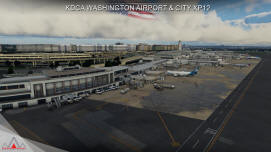
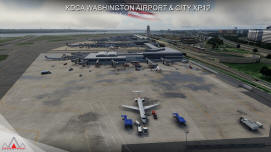
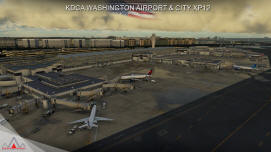

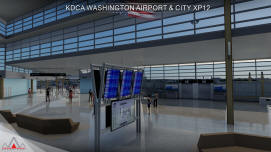 |
|
INSTALLATION
For manual install please refer to “Mac and Linux manual install”
files attached to the product. They provide a detailed instruction
on the manual install of the product. The automatic (Windows only)
install requires only to remove conflicting products from the sim.
Before proceeding with the manual install it is required to remove
any versions of the included airports you may have installed before.
|
|
SCENERY
FEATURES
-
A high-quality model
of KDCA Ronald Reagan Washington National Airport, featuring the
up-to-date version with extensive details throughout the whole
airport
-
FPS-friendly design,
with epic night textures, dynamic lighting and PBR materials
-
Performance-friendly
interior modeling at terminal buildings, control towers, and
some hangars, static aircraft, advanced night lighting (incl.
River Visual and dual PAPI), animated trains
-
Animated jetways,
VGDS, marshallers (SAM
plugin)
-
Washington D.C. city
scenery included, with over a thousand landmark buildings
surrounding the airport, ortho coverage and some lite airports
|
|
|





